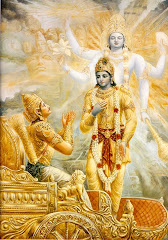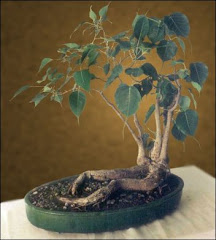
Major Sir Denis Thatcher, 1st Baronet, MBE, TD (10 May 1915 – 26 June 2003) who died at the age of 88, was the ideal consort for the Iron Lady, Margaret Thatcher. An adaptable businessman with gentlemanly values, he did not take Westminster parochial politics seriously enough to embarrass or rival his wife, but was prepared to control his scepticism for the sake of a woman whom he always regarded as special without being in awe of.
When she became leader of the opposition in the late 70s, and the media besieged the family's Chelsea home, he was at his desk before nine the next morning, having commuted the usual 80 miles by car as though nothing had happened. It was not until he retired that his role as consort became a larger one and, even then, his non-executive directorships kept him busy.
Sir Denis was comfortable with himself, and able to deal with people in an emollient way. He never lost the grudging respect of satirists, who had him down as an entertainingly comic figure while sensing, on meeting him, that there was rather more to him than that. He certainly understood the unpredictability of crowds and their enthusiasm. Following his wife's final general election victory (her third election victory in 1987), she was roundly cheered. Whilst watching her wave to the cheering crowds outside Downing Street, Thatcher said quietly to their daughter Carol, "In a year's time she'll be so unpopular you won't believe it."
It took longer to happen (by 12-18 months), but his prediction was essentially correct. When Margaret Thatcher entered the leadership contest, having been challenged by Michael Heseltine, her husband predicted, long before anyone else, that she was "done for".
Nor was he afraid to get straight to the point when in royal circles. Once, the Duchess of York said to him: "Oh Denis, I do get an awful press, don't I?" He mimicked zipping his lips closed and replied: "Yes, ma'am: has it occurred to you to keep your mouth shut?"
His family were colonials, hailing from Wanganui, a coastal town in New Zealand, where there is a street named after them. His grandfather set up a firm producing weed-killer for railway tracks, the origin of the family fortune. At 28, his father settled in London to run a parent company, Atlas Preservatives. Sir Denis was born in Lewisham, south London, soon after the start of the first world war. At the age of eight, he was sent to boarding school in Bognor Regis, and at 13 he entered Mill Hill School, also as a boarder. Although he did not shine academically, he was good at cricket and rugby, and enjoyed attending the annual Duke of York camp with its "play the game" maxim.
In 1933, he left to join the family firm, which was by then dealing in paint and general chemicals. He was expected to work his way up from the bottom but, when put on the spot, would express himself with the sort of pungency for which he was to become well-known. As works manager, he went to Nazi Germany in 1937, and came back expressing the view that it was not a question of if war was coming, but when.
A Territorial army officer, he joined the 34th Searchlight regiment of the Royal Artillery, where his role was organisational, carrying out staff duties because of his bad eyesight. In 1945, promoted to Major and working from the British HQ at Marseilles, he organised the movement of thousands of Canadian troops from Italy to Belgium, and was awarded an MBE. He maintained that the army had taught him how to think as well as how to act, but the war marked his life in a way that was to remain a virtual secret for a generation.
In 1941, he met Margaret Kempson at an officers' tea dance: she bore a striking resemblance to a certain Margaret Roberts, who was to enter his life much later. They married in March 1942, never lived together because of the circumstances of the war, and were divorced in 1948, believing that they had nothing in common. Sir Denis was always reluctant to talk about the matter... he was so traumatised by the event. His two children only found out about his first marriage in February 1976... by chance, when the media revealed it.
He met Margaret Roberts (then a chemist and a newly-selected parliamentary candidate) at a dinner-dance, and was at first keener on her than she was on him. However, when he proposed to her in 1951, she accepted during the general election campaign, in which she reduced the Labour majority at Dartford by 1,000. After she had thanked her party workers at the count, he took the microphone to reveal that the candidate was to become his wife. They were married at the Methodist church in City Road, and spent their honeymoon in Portugal, Madeira and Paris, strange territory to her. It was an indication that his social and intellectual horizons had been wider than hers. Thatcher also financed his wife's training as a barrister and a home in Chelsea. In an interview with Kirsten Cubitt in early October 1970, he said, "I don't pretend that I'm anything but an honest-to-God right-winger - those are my views and I don't care who knows 'em."
There was something of the comic caricature in the fact that the birth of his twins, Mark and Carol, took him by surprise. He was watching a Test match at the Oval when they arrived early (15 August 1953)... delivered by Caesarean section. Both loved him greatly.
Sir Denis sold the family business when he was in his 50s. Eventually, much later, he retired - but as divisional director of planning and control at the Burmah Oil Company, which had taken over Castrol, the company that had bought his family business.
Being consort to the leader of the opposition, and then the prime minister, did not turn his life upside down, but it gave it a new visibility. He reacted by refusing all requests for interviews, and regarded journalists as "reptiles". Such indignation gave satirists something to work on. The "Dear Bill" letters in the Private Eye magazine, apparently penned by him to a golfing chum (Bill Deedes), gave author John Wells (along with Richard Ingrams) an opportunity to show Sir Denis as a figure of fun, but never contempt. The letters portrayed Denis Thatcher as a reactionary interested only in golf and gin. John Wells used the character portrayed in the letters, and created the stage play 'Anyone for Denis' (also shown on television). Thatcher started to play along — Ulster Unionist David Burnside recalled a reception in Blackpool "to which Sir Denis came along with his minder and declared: 'I don't know what reception I'm at, but for God's sake give me a gin and tonic'".
Behind the scenes, the real Sir Denis rarely offered political advice. When he did, he counselled that the Argentinians should be defeated, but not overly humiliated, in the Falklands campaign, because humiliation would make them more difficult to deal with in the future. Thatcher said that he wasn't sure where the Falkland Islands were until the invasion occurred in 1982. "I wasn't absolutely too sure where the Falklands was, and I didn't want to make a bloody fool of myself."
A decent man ("I hope I have never hurt anyone"), he was resourceful and disciplined, and worked quietly for many charities. He was, surely, one of the most tested, impressive and amusing consorts of all time, Prince Albert (husband of Queen Victoria of the United Kingdom of Great Britain and Ireland) not excluded. His baronetcy in 1990, for which that hereditary title was restored after a long obsolescence, was his public reward. The award was gazetted in February 1991 as Sir Denis Thatcher, 1st Baronet, of Scotney in the County of Kent. This meant that his wife was entitled to be called Lady Thatcher whilst retaining her seat in the House of Commons, and was also a hereditary title that was to be inherited by their son Mark... after Denis's death. It was the last British hereditary honour to be granted to anyone outside the royal family. However, Sir Denis Thatcher's wife was created a life peeress as Baroness Thatcher in her own right in 1992 after her retirement from the House of Commons. Often seen in the background while his wife attracted the attention, his consorts' motto was "always present, never there".
Please note: I did not compare Sir Denis with the 'Emperor of verbal Gaffes'... The Prince Philip, Duke of Edinburgh - Britain's longest-serving consort and the oldest serving partner of a reigning monarch. He is more in the league of another 'Monarch' with similar 'talents' - the peerless George W. Bush aka Dubyaman. The Duke had once famously complained, "I am nothing but a bloody amoeba. I am the only man in the country not allowed to give his name to his own children." This was after the then British Prime Minister Winston Churchill, advised the Queen to issue a royal proclamation declaring that the royal house was to remain known as the 'House of Windsor'... even after her marriage to Prince Philip. The Duke's Uncle, Louis Mountbatten, had advocated the name 'House of Mountbatten', as Elizabeth would typically have taken Philip's last name on marriage. And this did not go down well with Queen Mary, Elizabeth's paternal grandmother... who inturn informed Churchill. Only in 1960, after the death of Queen Mary and the resignation of Churchill, was an Order-in-Council issued that stated the surname of the male-line descendants of the Duke and the Queen who are not styled as Royal Highness, or titled as Prince or Princess, was to be Mountbatten-Windsor.
Incidentally, on 13 November 2009, rumours of Margaret Thatcher's death were erroneously circulated within the Canadian Government, after transport minister John Baird sent a text message announcing the death of his pet tabby called Thatcher. (Perhaps a certain 'perfectionist' Khan had taken a cue from this and christened his pet dog after the 'K,K,K,K... King of Hamming'... who also doubles up as the 'King of Promotions'.) However, the news was reported to Prime Minister Stephen Harper as the death of Baroness Thatcher, and almost caused a diplomatic incident between Canada and the United Kingdom. The electronic media was thus deprived of a platinum opportunity... to jack up their TRPs. What a pity! *sarcastic smile*
(Stay tuned...)
Footnote:
The term "Thatcherism" came to refer to Margaret Thatcher's policies as well as aspects of her ethical outlook and personal style, including moral absolutism, nationalism, interest in the individual, and an uncompromising approach to achieving political goals. American author Claire Berlinski, who wrote the biography There Is No Alternative: Why Margaret Thatcher Matters, argues repeatedly throughout the volume that it was this "Thatcherism", specifically her focus on economic reform, that set the United Kingdom on the path to recovery and long term growth.
Note: Some info gathered, courtesy: Wikipedia and the Guardian.
Photograph:
The general election of 1983 saw Denis on the campaign trail once more (Pic courtesy: Link)















hey u collect nice info.. u sud go and work for discovery channel...:D
ReplyDeleteTakes quite a man not be overshadowed or overwhelmed by his wife's achievements. Good know!
ReplyDeleteWow!! Roshmi your posts are so full of data and information!! :)
ReplyDeleteThat was a really nice tribute to a gentleman! Well done, Rosh!
ReplyDelete@ Deepa: Yep! I agree.
ReplyDeleteSir Denis was a member... of the vanishing breed called 'gentlemen'.
@ Shilpa: Thanks Shilpa! :)
ReplyDelete@ Writerzblock: Thanks Pal! Glad you liked it :)
ReplyDeleteReally informative! Good work :)
ReplyDelete@ Tang: Thanks Tangy! :)
ReplyDeleteExcellent post with a lot of analytical information.
ReplyDeleteI remember Mrs Thatcher was a very strong lady.Her name was associated with toughness.There was an AD in England which read" strong as Mrs t"
@ BK Chowla: I didn't know about the AD. Thanks for the info, Chowlaji :)
ReplyDeleteI admire Lady Thatcher in infinite proportions. If England has to put an end to the current morass... they have to 'return to Thatcher'. The folks who opposed/challenged/back stabbed her... were political/intellectual/moral pygmies.
from where do u collect all these info? have u studied political science or something?
ReplyDelete@ Reema: :)
ReplyDeleteNope, I haven't been a student of pol. science... ever in my life. But, I do have an interest in history/political events/current affairs. Right from my childhood.
I read a lot on these things and much more.
Thank you for your appreciation and encouraging words. Good to see you back in the blogosphere :)
Quite an interesting post this!!!!
ReplyDeleteA long one and an educative one indeed!!! Am through with the first part!!! Second part tomorrow!!!!
:-)
@ Niharika: Sure! :)
ReplyDelete